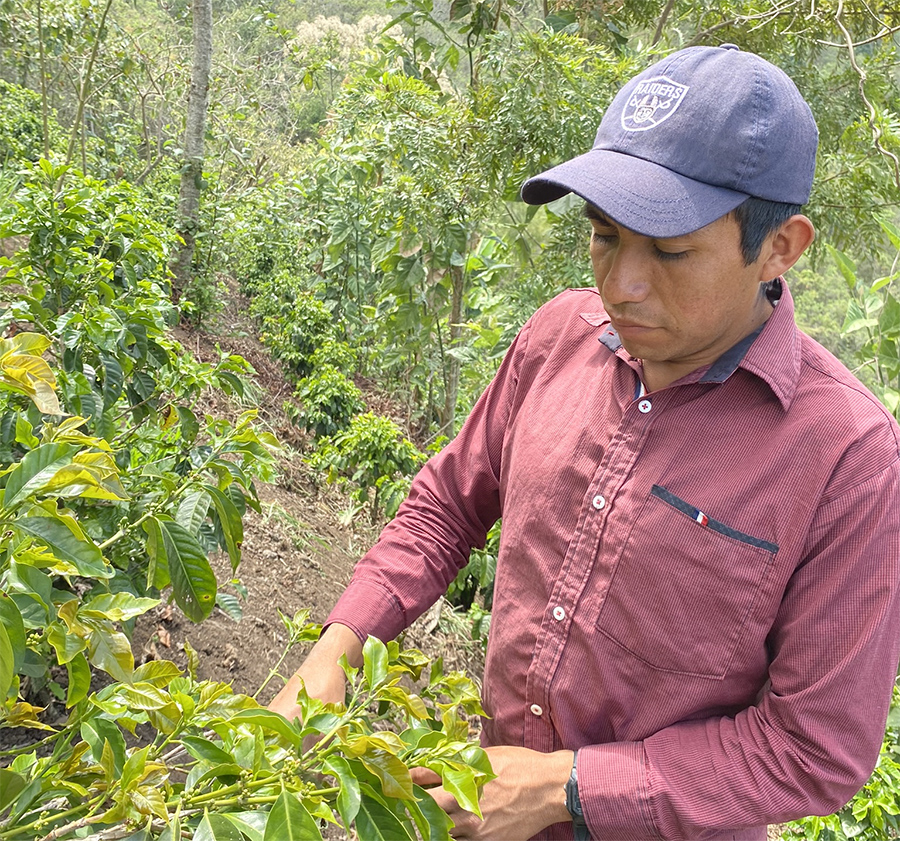- Coffee farmer José Méndez Cardona increased the yields of his coffee farm by 40% thanks to the good fertilization practices learned in the MOCCA program training.
One of the factors that most influences coffee yields is fertilization. Fertilizers are organic and inorganic materials that are supplied to plants to complement nutritional needs. Therefore, it is essential for coffee producers to understand the relationship between soil fertility, adequate nutrition and a good fertilization plan.
Many small coffee producers do not know the dosage, time, place and appropriate way to apply fertilizers, reducing the productive capacity of their plantations.
“I fertilized my plants, but I did not do it correctly nor did I know the type of fertilizer I should use, my yields were low and I had economic losses,” says José Méndez Cardona, a coffee producer from the municipality of Jacaltenango (Huehuetenango, Guatemala).

Méndez Cardona is 30 years old, married and the father of 3 children. His grandfather and his father were coffee producers and he decided to follow in their footsteps from a very young age. His wife supports him in the farm activities and she also accompanies him to MOCCA training. For them, coffee has a very valuable meaning, since it represents a means to earn a living and give better opportunities to their children.
José joined the MOCCA program training in 2020, motivated to learn new agricultural practices that would allow him to increase the productivity of his farm.
MOCCA is a 7-year initiative funded by the United States Department of Agriculture (USDA) through its Food for Progress Program, which seeks to improve agricultural productivity and expand trade in agricultural products. The MOCCA project is being executed by a consortium led by TechnoServe.
Méndez Cardona is 30 years old, married and the father of 3 children. His grandfather and his father were coffee producers and he decided to follow in their footsteps from a very young age. His wife supports him in the farm activities and she also accompanies him to MOCCA training. For them, coffee has a very valuable meaning, since it represents a means to earn a living and give better opportunities to their children.
José joined the MOCCA program training in 2020, motivated to learn new agricultural practices that would allow him to increase the productivity of his farm.
“After participating in the training, my performance increased by 40%. “I learned to recognize the nutritional needs of my coffee farm and to apply the appropriate fertilizers so that my plants are healthy and produce more.”
José Méndez Cardona
Coffee producer
Huehuetenango, Guatemala
With the profits obtained from his increased productivity, José purchased fertilizers and other inputs for his coffee farm.
In Huehuetenango, MOCCA works in alliance with olam food ingredients (ofi) and Jacobs Douwe Egberts (JDE), supporting more than 5,400 coffee producers in Huehuetenango with access to technical training, of which 59% are women.







